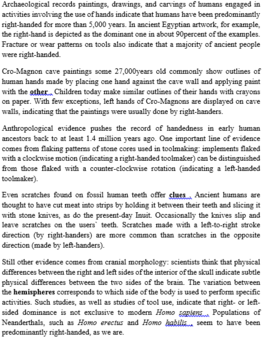Read the following passage and mark the letter A, B, C, or D on your answer sheet to indicate the correct answer to each of the questions from 28 to 34.
It is said that George Washington was one of the first to realize how important the building of canals would be to the nation’s development. In fact, before he became the President, he headed the first company in the United States to build a canal, which was to connect the Ohio and Potomac rivers. It was never completed, but it showed the nation the feasibility of canals. As the country expanded westward, settlers in western New York, Pennsylvania, and Ohio needed a means to ship goods. Canals linking natural waterways seemed to supply an effective method.
In 1791, engineers commissioned by the state of New York investigated the possibility of a canal between Albany on the Hudson River and Buffalo on Lake Eric to link the Great Lakes area with the Atlantic seacoast. It would avoid the mountains that served as a barrier to canals from the Delaware and Potomac rivers.
The first attempt to dig the canal, to be called the Eric Canal, was made by private companies but only a comparatively small portion was built before the project was halted for lack of funds. The cost of the prospect was estimated $5 million, an enormous amount for those days. There was some on-again-off-again federal funding, but this time the War of 1812 put an end to construction. In 1817, DeWitt Clinton was elected Governor of New York and persuaded the state to finance and build the canal. It was completed in 1825, costing $2 million more than expected.
The canal rapidly lived up to its sponsors’ faith, quickly paying for itself through tolls. It was far more economical than any other form of transportation at the time. It permitted trade between the Great Lake region and the East coast, robbing the Mississippi River of much of its traffic. It allowed New York to supplant Boston, Philadelphia, and other eastern cities as the chief center of both domestic and foreign commerce. Cities sprang up along the canal. It also contributed in a number of ways to the North’s victory over the South in the Civil War.
An expansion of the canal was planned in 1849. Increased traffic would undoubtedly have warranted its construction had it not been for the railroads.
The word “tolls” in paragraph 4 is closest in meaning to which of the following?
A. Grants
B. Fees
C. Links
D. Jobs




ĐÁP ÁN B